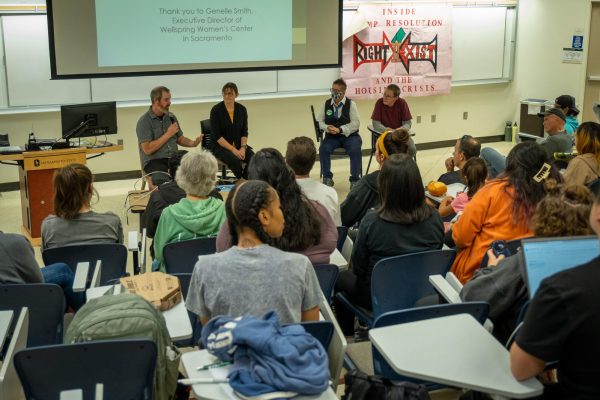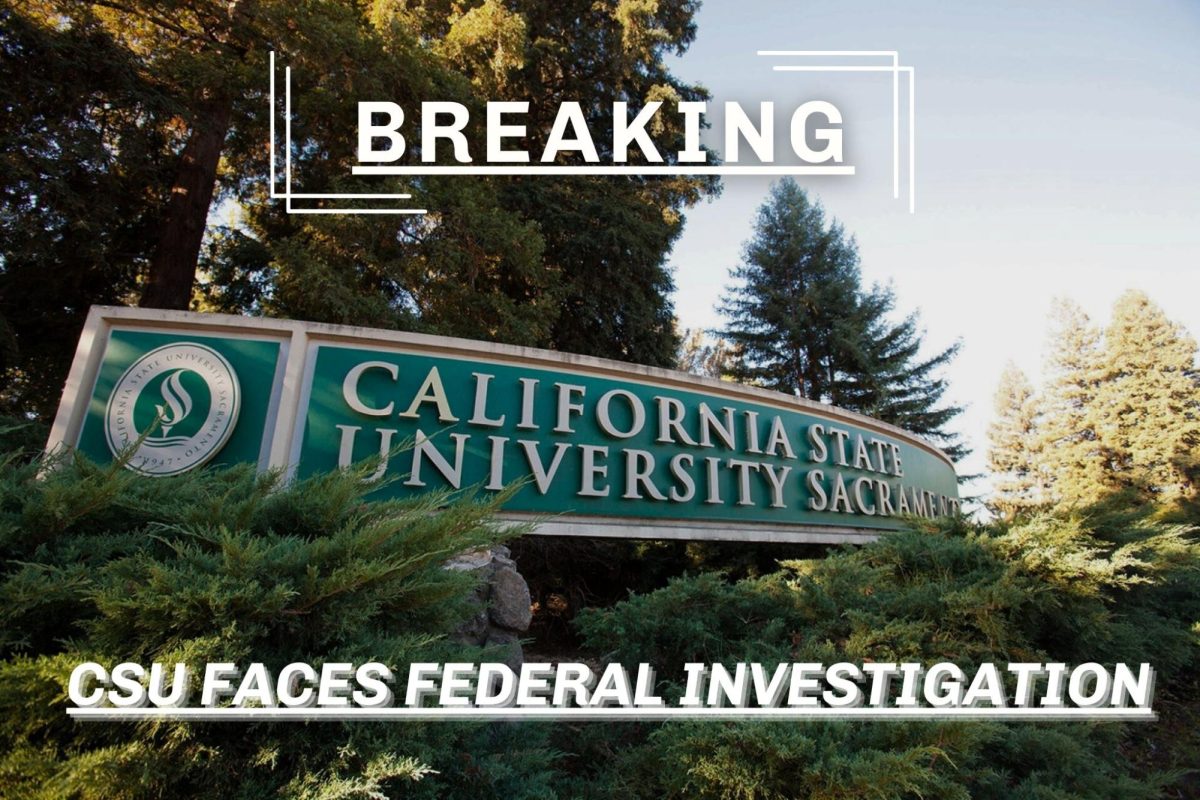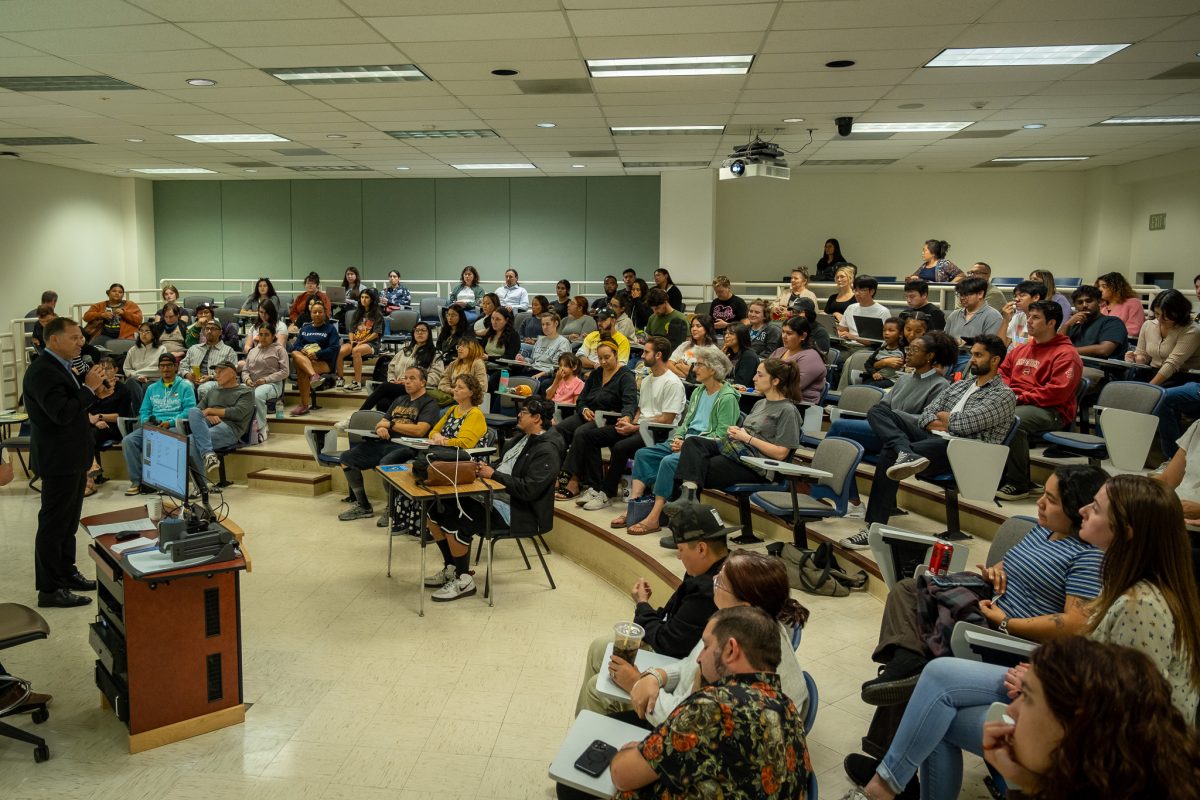A screening and panel discussion for the documentary “The Right to Exist” was held on Wednesday, Oct. 16 from 6 p.m. to 8 p.m. at Sacramento State in Mendocino Hall.
The film, directed and produced by Nick Anderson, examines the growing housing crisis in Sacramento, following the narratives of people who experience homelessness firsthand.
Anderson said he created this film to highlight the complexities of homelessness and how it is shaped by social, economic and political factors.
“I saw how many misconceptions people had and assumptions they had about the homeless community,” Anderson said. “And I thought I really need to make a film that answers those questions.”
RELATED: OPINION: Homeless people are people first
The event included a partial screening, followed by a panel with subjects and creators of the documentary.
The panel comprised the director of the film Nick Anderson, associate professor in the school of social work Arturo Baiocchi, executive director of Wellspring Women’s Center Genelle Smith and Camp Resolution residents Sharon Jones and Joyce Williams. The discussion highlighted challenges faced by Sacramento’s homeless population, including issues like drugs, violence and other safety concerns.
Camp Resolution was a housing encampment established by Jones and her wife to provide a safe space for homeless individuals. The camp became a symbol of both hope and tension when it was shut down in late August, after Gov. Gavin Newsom signed an executive order prompting the closure or removal of such encampments.

Panelists criticized the city sweeps and emphasized the inadequate housing options, rising housing costs and systemic factors that lead to homelessness. The conversation also explored the connection between homelessness and issues such as job loss, mental illness and family crises, calling for more comprehensive solutions.
Anderson said he was introduced to Camp Resolution through Baioochi, who was conducting research on the camp and was also featured in the film. Anderson said he drew inspiration from its story as a self-governed, city-sanctioned camp. The film’s uplifting tone became the focal point for sharing Camp Resolution’s journey in “The Right to Exist.”
“The filmmakers were making a film about homelessness in Sacramento, and they asked if I could help be a consultant,” Baiocchi said. “I was doing research at Camp Resolution, and so I encouraged them to include it in this film.”
Six months into filming at Camp Resolution, the community received an unexpected eviction notice. In response, the community organized a march to the Capitol and protest demanding protection to keep Camp Resolution in place.
“They had these amazing speeches at city hall, and the board let them stay there until Dec. 1st,” Anderson said. “Then end of June brought the Grants Pass, and within 60 days, the camp was swept away.”
On June 28, 2024, the Supreme Court issued a ruling called the “Grants Pass” that allows jurisdictions to clear encampments even if there is no alternative housing for those affected. The closure of Camp Resolution in late August was one consequence of the decision.
“That then became the core of the story, and we changed the name of the film from ‘A Call for Home’ to ‘The Right to Exist,’” Anderson said.
Elias Cruz, a student in the master’s program for social work at Sac State, said he attended the event after hearing about it from his classmates.
Cruz said he wants people to urge community leaders and elected officials to leverage their influence to advocate for these solutions and address the human rights issues related to homelessness.
Baiocchi said he believes a good strategy to address homelessness is to convert motels and hotels into supportive housing.
“There’s some movement with affordable housing,” Baiocchi said. “Unfortunately, I think we’re also in this new era of trying to sweep and push folks who are experiencing homelessness out of sight.”
Alexander Rodatos, a film production student at Sac State, said he found the film to be well-made and impactful in highlighting the stories of homeless individuals.
“So I actually know the director, he’s been a great mentor of mine,“ Rodatos said. “I was really excited to see what work he’s done with it, and I’m very impressed with the story and the message that’s coming across with this documentary.”
Baiocchi said he echoes the film’s motivation to bring attention to the humanity behind the struggles of homeless individuals.
“I think this movie is important because it humanizes a difficult issue. I think it’s important to remember that these are our community members who are experiencing this,” Baiocchi said. “This is not just a film, it’s real life.”

























































































































